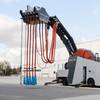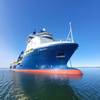Fossil Fuel Recovery to Benefit from New Technology
New York - Considerable investment is being ploughed into oil and gas enhanced production services in the hope of increasing production efficiency in a market in which global hydrocarbon consumption is only expected to increase, according to market intelligence experts GBI Research.
The new report shows that the application of enhanced production techniques, such as the artificial lift technique in upstream production processes, and sand control services, will considerably improve the percentage recovery of oil and gas from onshore and offshore reservoirs.
Artificial lift services picked up the pace in 2011 as a result of increasing oil and gas demand, which brought about the need to enhance production above levels achieved from naturally flowing reservoirs. The Ministry of Oil and Gas in Bahrain has recently declared an increase of over 25 percent in their country’s oil production, from 32,000 barrels per day to roughly 40,000 barrels per day. This represents the first production increase in the past 33 years, and is direct a result of artificial lift techniques, applied in oil and gas extraction activities within their wells.
Global artificial lift expenditure is expected to steadily increase at an AAGR of 8.83 percent during 2011-2016, from $6.18 billion in 2011 to some $8.91 billion in 2016.
Artificial lifts improve the percentage of hydrocarbon recovery, by adding energy to the fluid column in a wellbore to initiate and develop production from the well. Artificial-lift systems use a range of operating principles, including rod pumping, gas lifts, and electric submersible pumps.
Sand control services are also expected to gain popularity, driven by E&P activity in mature oil and gas fields. As oil and gas reservoirs reach their peak production cycles, there is an increase in water and sand production, as sand production naturally rises in correlation with the age of well, while the hydrocarbon production yield falls. Some new wells with reservoir properties also require sand screens and proppant in the well completion.
Sand control services prevent the transport of solids from the reservoir into the process facilities, which could adversely hamper flow assurance and impact well integrity. Therefore, sand management solutions are expected to be of rapidly increasing importance, especially for depleting reservoirs in today’s increasingly competitive market. Utilization of technology, such as sub-sea sand erosion sensors, which control sand production rates and removal services, could lead to reduced shutdowns, and help operators increase production efficiency from depleting or mature assets.














